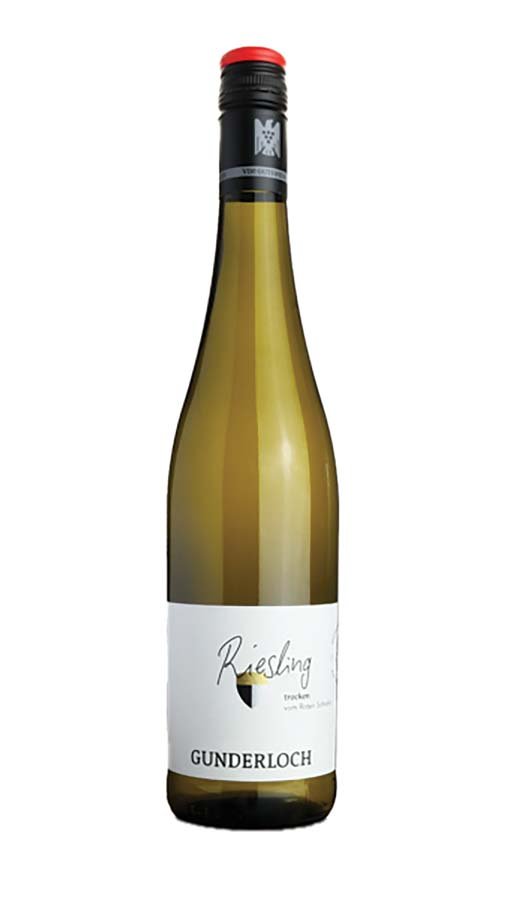Going Deutsch
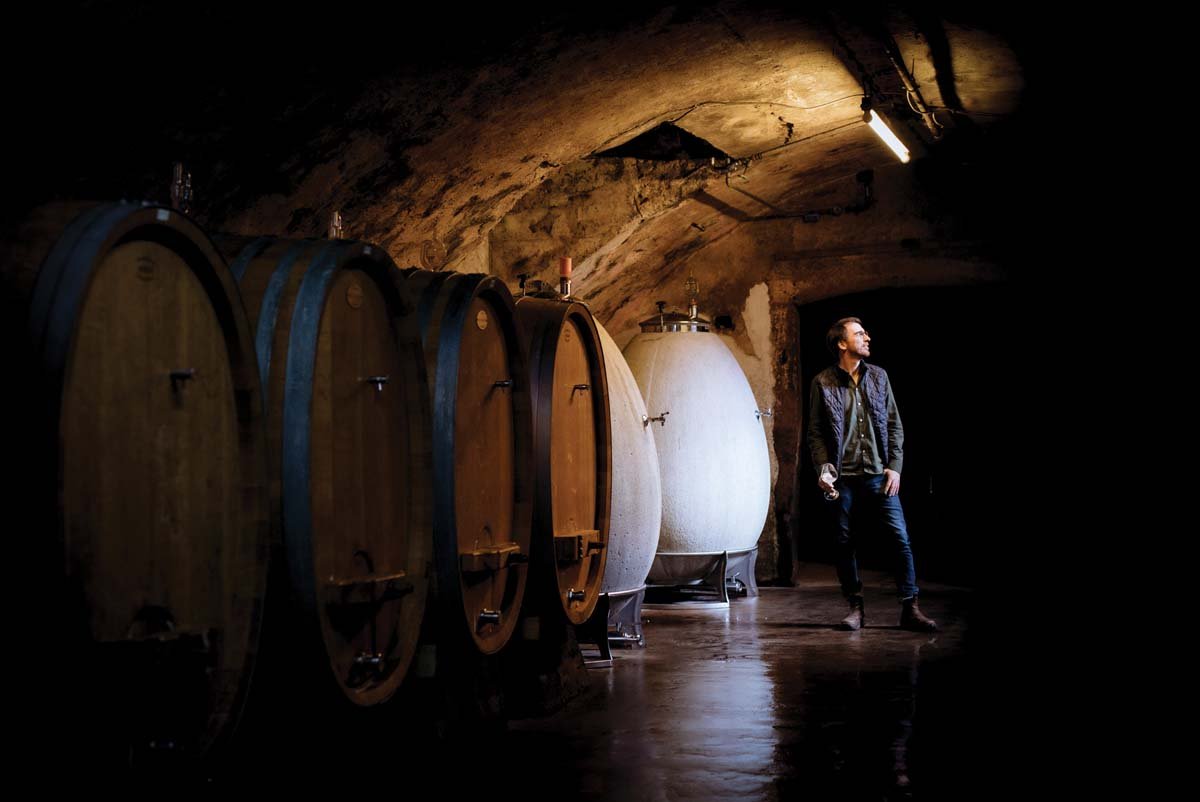
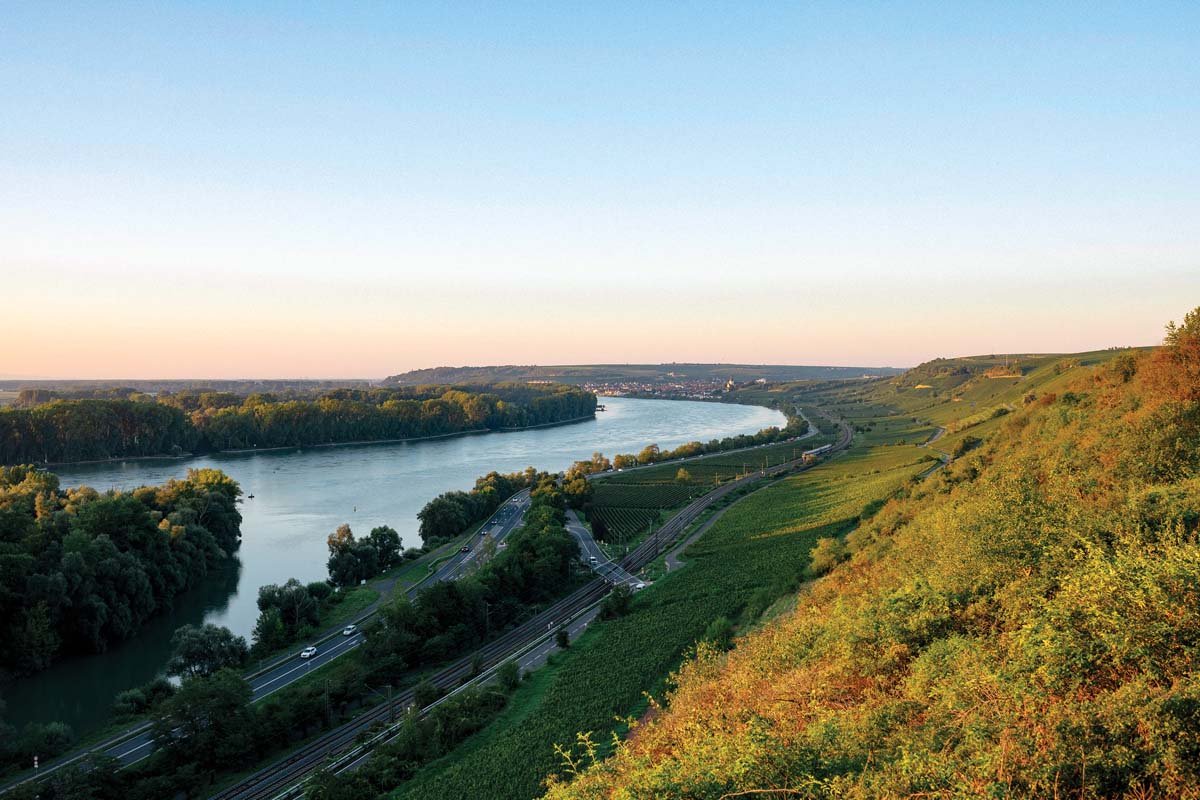
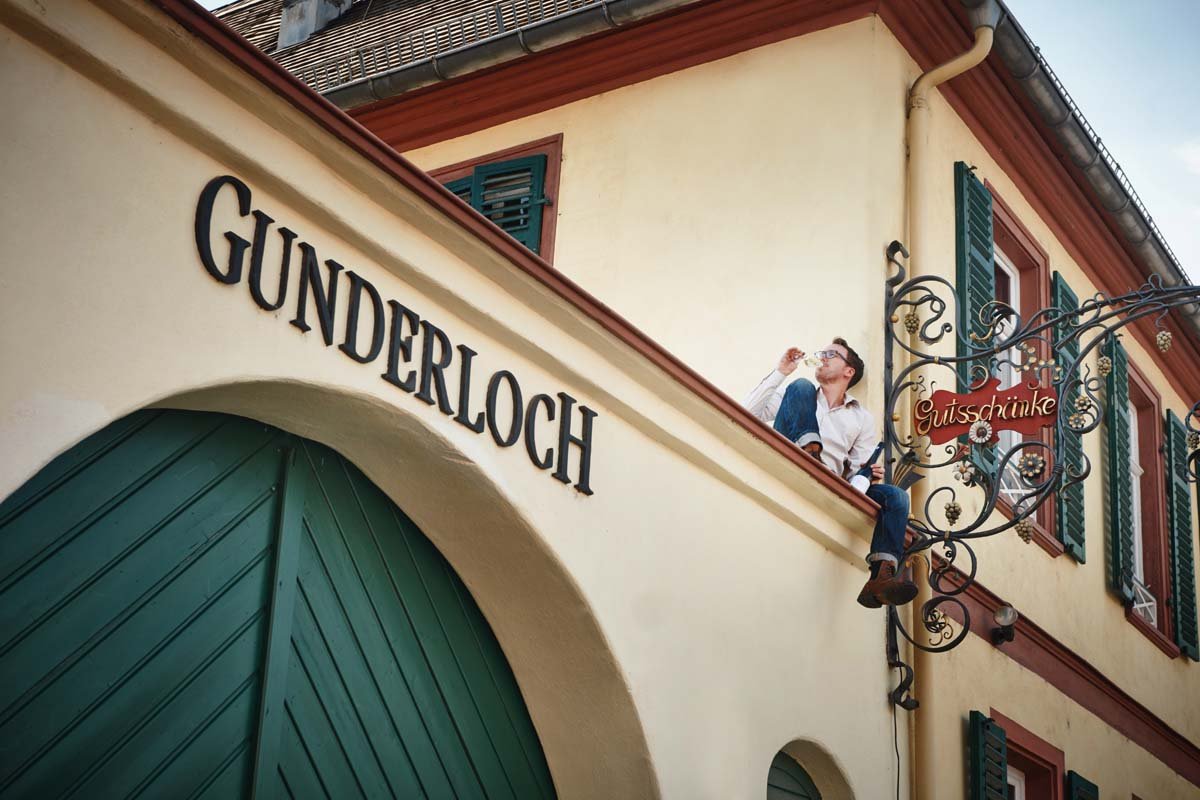
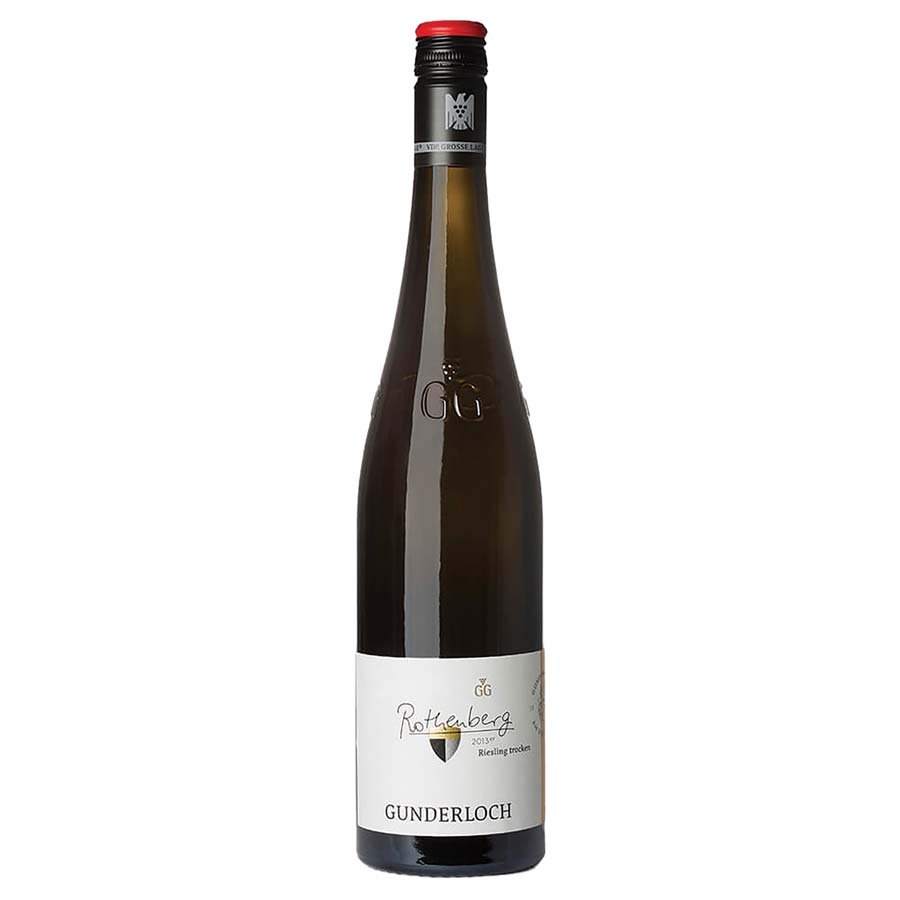
Like Uluru (aka Ayers Rock) in Australia, out of the relatively flat terrain along the Rhine River of Germany rises the Roter Hang; a magical hillside named for its red, iron rich soils that give Riesling grapes a wonderfully unique structure and mineral character that has garnered the Rheinhessen region of Germany a reputation for some of the finest Rieslings anywhere. The Roter Hang is also home to the family Estate of Weingut Gunderloch headed now by Johannes Hasselbach, the sixth generation of the family to farm these almost magical vineyards.
Weingut Gunderloch was established in 1890 by Hasselbach’s great, great, great, great, Grandfather Carl Gunderloch. Carl was actually a banker in Mainz and believed so much in the vineyards along the Roter Hang that he sold his interest in the bank and purchased almost the entirety of its greatest vineyard — Rothenberg. He also purchased plots in two of the other Grosses Gewachs (or Grand Crus-the highest designation for vineyards in Germany) Pettenthal and Hipping. This is the triumvirate of top vineyard sights for the family. Carl was so dedicated to quality of German wine that he was also one of the founding members of the prestigious VDP (Verband Deutscher Prädikatsweingüter) an association of Germany’s finest winegrowers.
The Rothenberg vineyard is a truly special and exceptional place. Fully southeast facing, the soils are a red clay slate, not of volcanic origin, but sedimentary. It is planted almost exclusively to the noble Riesling grape which Hasselbach calls “the perfect tool to express the terroir of Rothenberg.” The high average vine age of 45 years ensures that the vineyard can withstand dry conditions and give consistently great fruit. It is also more densely planted in comparison to other estates with 6,000 vines per hectare compared to 4,500.
Coming to work at the family estate from a different career is a theme with this family. Hasselbach’s father was a schoolteacher before managing the vineyards and making wine. Hasselbach studied accounting and business administration before he “heard the call of the winery” — coming back to make wine with his father Fritz in 2013 and finally taking the reins in 2016. Which is when they completed the new winery. Hasselbach speaks of his philosophy, “Each generation is farming the same land but in a different timeframe … I came home with a blank piece of paper. We work the land without being bound to the past. I listen to the vineyard.”
Some things have changed. Previously they used to move soil from the bottom of the hill to the top due to erosion. Now they use crop cover not only to maintain the topsoil, but it also helps with the water table and helps to rein in the vigor of the vines. Today’s technology is in use with drones that spray areas only where treatments are required. The estate vineyards are now organically certified and biodynamic ideas are also coming into the fold. All of this is with the goal of growing the highest quality fruit that goes into the winery. He has zero tolerance for unhealthy grapes and the triage for quality happens in the vineyards. And for even greater environmental awareness, their bottles are now 30% lighter.
In the winery there is less and less stainless steel. Hasselbach prefers to use large, used wooden vats for fermentation. “I like to create circumstances for nature to do its work.” Slow pressing, no clarification, wild yeast fermentations and all the wines stay on the gross lees until bottling. “Now it is a big party, what can happen will happen.” This may sound a little extreme, but the goal here is for the fermentations to occur naturally and end on its own time rather than being controlled by the winemaker. The result is wine with more energy and complexity.
There are at least 17 wines in the Gunderloch stable at one time but some of my current favorites include the 2022 Gunderloch Jean Baptiste Riesling Kabinett, which is an amazing value considering it comes entirely from the Grand Cru vineyard of Pettenthal. It has a harmonious character of sweetness and acidity. Airy and lovely, it shows floral, peach and pear notes and a delectable kiss of sweetness on the finish. So good with grilled apple sausages, Thai curry or spicy poke. Outside of the Gunderloch Rothenberg Grosses Gewachs bottling which rarely leaves Germany because of its demand, one of the rare treats to taste to see a pure expression of the vineyard is the 2012 Gunderloch Rothenberg Riesling Spätlese. Wow! This wine somehow combines the richness and power along with the elegance of Riesling. It is remarkably fresh at 12 years old; elegant, honeyed on the palate but there is a spiciness that can only come from the red slate in the vineyard that is evident. The piercing acidity helps to balance the sugar, it is like an electric charge through all the wonderful tropical ripe fruit.
On special occasions there is a vineyard and estate that has a virtuoso expression to be shared. We have this at Gunderloch and the Rothenberg vineyard. I am sure Carl Gunderloch would be happy about his investment and proud of the new generation here in the Roter Hang.

